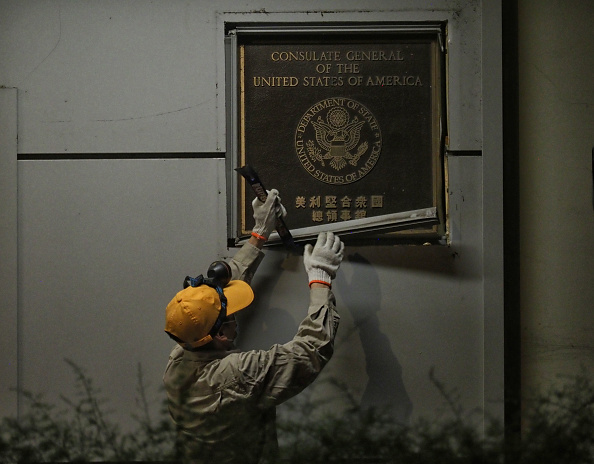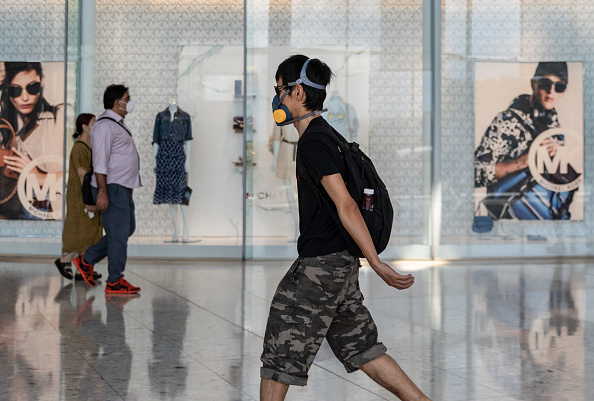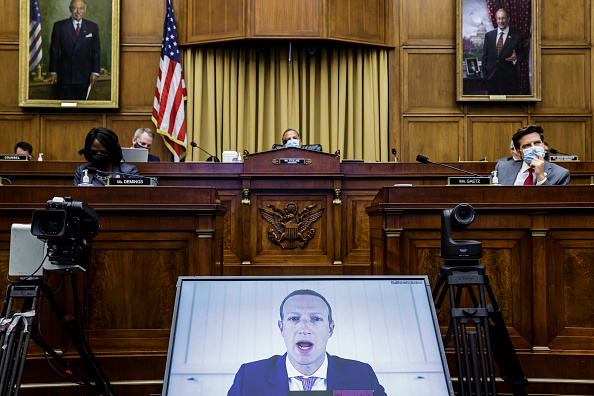
 Turning Tides
Turning TidesThe flags were lowered at the US consulate in Chengdu this Monday, after being ordered by the Chinese government to close in retaliation for Washington's closure of China's Houston consulate last week. The closure of the US consulate – America's only post in western China – was described by Chinese Foreign Ministry spokesperson Wang Wenbin as a "legitimate and necessary response" to Washington's actions. In a recent op-ed, Chinese Ambassador to the US Cui Tiankai penned disappointment over the closure of the Chinese consulate in Houston, citing that "China's U.S. policy remains unchanged." Even so, relations seem unlikely to improve anytime soon; on Thursday, US Secretary of State Mike Pompeo claimed that "the tide is turning" internationally against China, in a Senate hearing that saw the Secretary admit difficulties in forming international alliances against China due to the nation's economic influence. Read more in "Parsing the Trump Administration's Broadside Against China", from David Shambaugh, Gaston Sigur Professor of Asian Studies, Political Science & International Affairs at George Washington University.
Questions over whether China would meet its obligations under Phase One of the trade deal between the new countries were also raised this week. Under the terms of the agreement, China promised to purchase $170bn in US agricultural produce, manufactured goods and energy products like coal in 2020; to the end of June, China had only purchased less than a quarter of that target, with soybean and pork imports decreasing compared to the months before. For his part, President Trump said that "the trade deal means less to me now than when I made it," blaming China's coronavirus response for a weak American economy in the second quarter of 2020. China has maintained that "it will implement the agreement," according to a July 16th press conference.
 Tough Decisions
Tough DecisionsChief Executive Carrie Lam warned that Hong Kong was on the verge of a 'large-scale' outbreak of COVID-19, after a spike in cases brought the average daily new case number to over 100. Anger has been levelled at the city's quarantine policies, which exempted many airline crew members and certain company executives coming in from the Chinese mainland, a move which the city's government has defended.
Following these coronavirus concerns in the city, authorities in Hong Kong have delayed forthcoming elections for the city's Legislative Council by at least a year. Worried over the dangers of canvassing, holding election rallies and the conducting of the poll in the midst of a pandemic, Carrie Lam said that it was "a really tough decision to delay" the elections, originally due to be held in September, but that the city's government wanted to "ensure fairness, public safety and public health."
The decision comes a day after authorities in the city barred 12 candidates from standing in September's Legislative Council elections over infractions of the city's new National Security Law that was brought into effect earlier this month. Candidates disqualified include a number of sitting lawmakers, as well as activists who were hoping their candidacy could bring victory to the pan-democrat group in the forthcoming election.
 TechTalk & TikTok
TechTalk & TikTokShares in California-based tech company Qualcomm surged on Wednesday after it resolved a long-running dispute it had with Huawei over patents. The deal, which would see Huawei pay $1.7bn in "catch-up" fees to use Qualcomm's patents for its own products, now means that Qualcomm has a multi-year deal with every major handset manufacturer. Against the backdrop of increasing sanctions – particularly in the technological realm – brought in by the United States against Chinese manufacturers, the deal was somewhat unexpected.
Hopes of any rapprochement between the US and China over technology were quickly dashed, however, by testy antitrust hearings which saw top tech executives questioned over the role of China in intellectual property theft. The executives' responses were varied. Facebook's founder, Mark Zuckerberg, appeared to backtrack on his previous efforts to court China's government and investors, saying that IP theft by Chinese authorities was "well documented." CEOs from Apple, Amazon and Microsoft largely played down China's involvement in intellectual property theft, a move that Secretary Pompeo suggested left him "incredulous." Meanwhile, news that the Trump administration may push for the US portion of TikTok to be sold over national security concerns has exacerbated the two countries' already tense tech relationship.
Prepared by China-US Focus editorial teams in Hong Kong and New York, this weekly newsletter offers you snap shots of latest trends and developments emerging from China every week, while adding a dose of historical perspective.
- 2020-07-24 Up in Smoke
- 2020-07-17 Status Stripped
- 2020-07-10 A Historic Moment
- 2020-07-03 Handover Tested
- 2020-06-27 Relationship Spiral
- 2020-06-20 Bolton Bombshell
- 2020-06-13 Fits and Starts
- 2020-06-06 Confluence of Crises
- 2020-05-29 Questions of Autonomy
- 2020-05-22 Pandemic Decisions
- 2020-05-16 Fractures and Fault Lines
- 2020-05-09 Attacks and Counterattacks
- 2020-05-02 Retaliatory Actions
- 2020-04-24 Sinking Perceptions
- 2020-04-18 Pandemic World
- 2020-04-11 The Long Road Back to Normalcy
- 2020-04-03 Shifting Gears
- 2020-03-28 Cooperation or Confrontation
- 2020-03-20 World in Turmoil
- 2020-03-13 Global Emergency